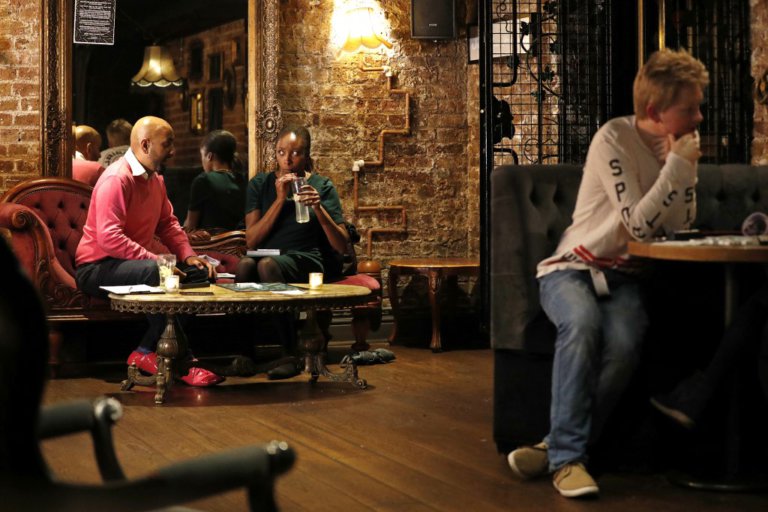
New Zealanders vote in a general election on Saturday, with Prime Minister Jacinda Ardern expected to win a second term thanks to her deft handling of the COVID-19 crisis. Here are five things to know about the South Pacific nation of five million people and 27 million sheep:
Scrabble superpower
New Zealander Nigel Richards is undisputedly the best Scrabble player ever — not only has he won the world championship five times, he also claimed the French-language title despite not speaking French.
In 2015, Richards memorised virtually the entire francophone Scrabble dictionary then stunned competitors with an unexpected victory in Brussels.
The 53-year-old, who lives in Malaysia, needed a translator to thank spectators.
Somewhat ironically, the reclusive Richards is known as a man of few words, rarely giving interviews and shunning the spotlight.
A rival New Zealand Scrabbler once said Richards was “like a computer with a big ginger beard”.
Find out more about this inspiring pony-human friendship travelling across Europe on foot https://t.co/0eOhczl8mr
- Study International (@Study_INTNL) October 5, 2020
That logo won’t fly
Flightless, timid, and renowned for being a bit dumb — the kiwi bird seems an unlikely choice to represent the nation’s air force.
Yet the ground-dwelling avian has appeared at the centre of the Royal New Zealand Air Force roundel — the circular design pained on aircraft — since 1970.
The RNZAF addressed the issue last month, when the red kiwi logo marked its 50th anniversary in service.
“Why is the Kiwi, a flightless bird, our logo?” the air force tweeted.
“The NZ public had a large part in its adoption in 1970, as the nation called for a logo which was clearly distinguishable, but also represented our people.”
It’s not like there were not more fearsome alternatives — New Zealand was once home to Haast’s eagle, a raptor with a three-metre (nine foot) wingspan that Maori oral tradition says was capable of carrying off a small child in its talons.
Here’s a ray of hope for #intlstudents – New Zealand will be allowing a small number of foreign students into the country in November. https://t.co/cLPAnhqcIu
- Study International (@Study_INTNL) October 15, 2020
Cauliflower conniption
New Zealand has achieved remarkable success in eliminating community transmission of COVID-19, allowing Kiwis to concentrate on less pressing matters.
During a strict nationwide lockdown earlier this year, the issue that most vexed the nation was cauliflowers, with allegations greengrocers were inflating the price of the much-loved vegetable.
A government watchdog monitoring profiteering was inundated with complaints that the cost of cauliflowers had more than trebled to 13 New Zealand dollars (9 US dollars).
Prime Minister Jacinda Ardern even got involved, raising the issue during her daily press conference.
“I want to say to people that we are taking these complaints seriously,” she deadpanned, staring down the barrel of the camera.
Since the lockdown ended, cauliflower stockpiles have been replenished, meaning New Zealanders are no longer cheesed off about the price of their favourite flowering cabbage.
Shear genius
Sheep-shearing is recognised as a legitimate sport in New Zealand, and there is even a push to have it included in the Olympic Games.
The government agency Sport New Zealand gave shearing official status in 1994 and Federated Farmers suggested in 2012 that it deserves a place on the international stage at the Games.
Top shearers can clip two sheep a minute working for hours at a time, the Federation argued at the time, saying they were “athletes in every sense of the word”.
It said shearing as a sport demanded not only mental toughness and physical strength, but dexterity and finesse, with the sheep providing a chance element.
A Federated Farmers spokeswoman confirmed the lobby group remained keen on seeing shearing at the Olympics.
“Showing off shearing on the world stage gives an opportunity for audiences all over the world to be educated about the fact that sheep are not harmed by shearing,” she said.
Find out what #accommodation options are available for #internationalstudents in #newzealand https://t.co/oPKQwf8w56
- Study International (@Study_INTNL) October 7, 2020
Weird science
Under an obscure provision in New Zealand’s Atomic Energy Act of 1945, high schools are allowed to have one pound (0.45kg) of uranium.
The legislation says the material can be “used for the purpose of instruction and of investigation” into radioactivity and its properties.
Unfortunately for students hoping to build themselves an atomic arsenal, New Zealand declared itself nuclear-free decades ago, meaning uranium is in short supply.
The law also says the uranium must be “of natural isotope composition”, which means it would not be the enriched material used in nuclear missiles and power plants.
The education department was unable to shed any light on whether any schools were storing uranium, or why the strange provision remains on the books.
Liked this? Then you’ll love…
Doing this one thing helps community college students transfer to a 4-year university
Australian universities to receive less funding for students undertaking environmental studies







